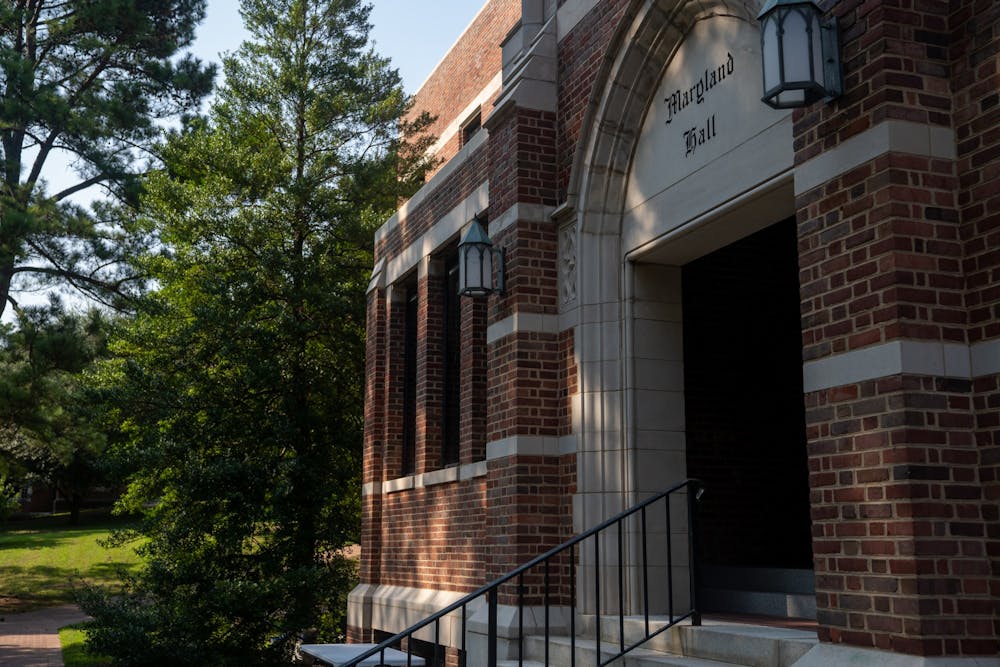In spring 2020, the University Academic Program Committee approved and implemented changes to the University of Richmond’s class withdrawal policy, giving students more agency in their decision to withdraw from a course.
Yet with an abrupt mid-semester transition because of COVID-19, the news of the change may have gone unnoticed by students.
The new withdrawal policy, which was announced via SpiderBytes on Oct. 22, makes three main changes to the process of withdrawing from courses after the add/drop period.
The first change is the extension of the withdrawal deadline from the end of the seventh week to the end of the 10th week of classes, according to a memo from the UAPC that was sent to the Faculty Senate on April 16, 2020. This change gives students more flexibility to experiment with a class they may be unsure of committing to by giving them more time to decide whether to withdraw from the course.
Sandra Peart, dean of the Jepson School of Leadership Studies, was not involved in making the new policy but thinks the extension is beneficial for students, she said.
“I think there was a desire to make sure that ... [students’] cases would be treated equitably and impartially, and that they would have more information at the point at which they would withdraw,” Peart said. “The extension from week seven to week 10 means that there’s a greater chance that they’ll have feedback in terms of graded work.”
Previously, students who wanted to withdraw were required to get signatures from their course professor, academic adviser and the dean of that school. The new policy removes the requirement for an academic dean's approval to withdraw, according to the memo; instead, students are only required to consult with their appropriate dean, according to the same memo.
The required consultation is meant to ensure that college deans can advise students on their decision and provide insight into the next steps.
Mia Reinoso Genoni, dean of Westhampton College and co-chair of the Student Support Services Subcommittee, part of the Presidential Advisory Committee on Making Excellence Inclusive, said the changes to the withdrawal policy had been made for two reasons.
The first reason was to give students greater ownership of their own academic career while making sure that they still received advising from their professor, academic adviser and academic dean, Genoni said. The second was to ensure that college deans were involved from the start of the withdrawal process.
“Our job is to make sure that you’re properly advised,” Genoni said. “One is to make sure that we give that advice, financial aid, career, whatever it is, all of our decanal wisdom.
Enjoy what you're reading?
Signup for our newsletter
"Also sometimes [withdrawing from a class early is a sign of] the beginning of a challenging semester, and we wanted to have the opportunity to get involved sooner so that if we were able to figure out if there is something that we can support with, whether it’s meeting with us or considering an accommodation ... we wanted to have that opportunity earlier as opposed to the other system.”
The third and final change to the withdrawal process expands the acceptable justifications for withdrawal to include both current medical reasons and other circumstances of similar seriousness, according to the UAPC memo. The original policy only cited medical reasons as an appropriate reason for withdrawal, leaving an array of other possible mental or academic circumstances unacknowledged.
The wording change alleviates confusion and allows non-medical unforeseen circumstances, such as family emergencies, to warrant a withdrawal.
Timothy Hamilton, professor of economics and chair of the UAPC, said the change was meant to expand on what could be used as a reason for withdrawal.
“We kind of widened that this is not just medical reasons,” Hamilton said. “You don’t have to break your leg and be stuck in bed for a month; there’s a lot of reasons why we might want to have exceptions to this, so we built that in there too.
"I think it demonstrates that each individual faculty recognizes there is a lot going on.”
Contact news writer Quinn Humphrey at quinn.humphrey@richmond.edu.
Support independent student media
You can make a tax-deductible donation by clicking the button below, which takes you to our secure PayPal account. The page is set up to receive contributions in whatever amount you designate. We look forward to using the money we raise to further our mission of providing honest and accurate information to students, faculty, staff, alumni and others in the general public.
Donate Now



